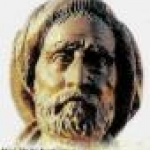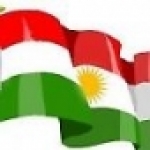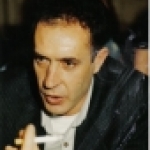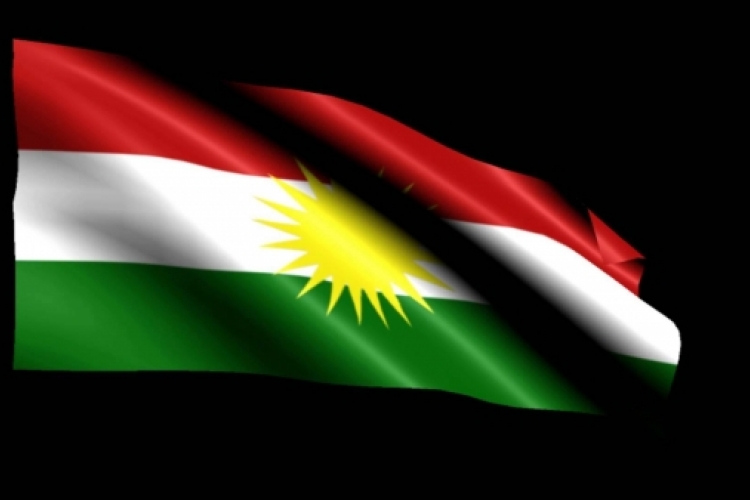[b]"There is still a policy based on the destruction and denial
of the Kurds..."[/b]
14 August 2008
[img]http://www.berbang.org/berbang/i_besikci.jpg[/img]
[color=#990000]*Beþikçi:[/color]
[i][b]Solution to Kurdish issue needs analytical deliberations first[/b]*[/i]
This highly regarded 69-year-old man is "the Blonde Professor" of Turkey's
Kurds, since -- as Martin van Bruinessen of Utrecht University has very
appropriately said -- for many years he was the only non-Kurdish person in
Turkey to speak out loud and clear in defense of the rights of the Kurds.
"The Blonde Professor," is the epithet the esteemed and prominent
sociologist Ýsmail Beþikçi earned from Turkey's Kurds as he spent 17 years
of his life in prison for what he said of the Kurds' existence in this
country. Before being released from prison in September 1999 under an
amnesty law for writers and journalists, he had been sentenced to over 100
years.
"No other writer in Turkish history has had to face such an endless series
of trials and prison sentences for almost every public utterance as Beþikçi
has. The odyssey of Beþikçi's encounters with Turkey's legal system shows,
more eloquently than any abstract political or legal analysis could, what is
wrong with the system, and it demonstrates effectively how the officially
proclaimed human rights and democratic values become null and void where the
Kurdish question is involved," Bruinessen says in a paper titled "Ýsmail
Beþikçi: Turkish sociologist, critic of Kemalism, and Kurdologist."
"Continuing to write and speak in spite of all attempts to silence him,
Beþikçi has become a powerful and important symbol for the Kurds and for the
human rights movement of Turkey. In the eyes of many Kurds he has acquired
almost super-human qualities, as the only Turk who has never left them alone
and who has, at great risk to himself, always stood up for them and
single-handedly challenged an oppressive and brutal state," he says in the
paper, published in 2005 in volume five of the Journal of Kurdish Studies.
The following consists of two separate Today's Zaman interviews with
Beþikçi; the second interview followed his recent reading of an open call by
author and politician Orhan Miroðlu for a debate on unsolved political
murders, since evidence submitted to a court last month as part of the
indictment against Ergenekon, a shadowy network being accused of plotting to
overthrow the government, suggests that the network was behind many
assassinations committed by unidentified assailants in relation to the
Kurdish issue.
Beþikçi apparently hasn't yet "retired" and he has no intention of doing so.
Almost every weekday he takes a public bus from his home to Ankara's Kýzýlay
district to read and write at the office of Yurt Yayýnlarý, the publishing
house that publishes his books.
When Today's Zaman arranged a third meeting with Beþikçi to photograph him,
he was quite patient with the newspaper's photojournalist, who wanted to
take a lot of photographs from different angles. Yet, once more surprising
us with his strikingly innocent naïveté and sense of humor, smiling to the
camera, Beþikçi said "Edi bese!" ("Enough is enough" in Kurdish). Then it
was noticed that one of his hands was marked with henna. When asked, he said
he had attended a Kurdish wedding near a village in the district of
Cihanbeyli in Konya over the weekend and that he didn't want to refuse his
hosts, who wanted to put henna on his hand in line with Kurdish tradition.
Beþikçi has his own dictionary and the meanings he attaches to words need
not be the same as those understood by other people. But some of his words
in their commonly used forms are loaded with meanings that Today's Zaman
cannot identify itself with. But Today's Zaman also cannot identify itself
with censorship or taboos. We didn't touch Beþikçi's wording. The
ideological positions expressed in this article belong to him alone, but we
should advise our readership not to equate him with any anti-establishment
rhetoric just because of the words he uses. Take off the glasses of
prejudice and you will find the wisdom in his remarks.
*Do you agree that the indictment, which provides clues for exposing the
Ergenekon organization's activities in the Southeast, could offer a chance
for a new social reconciliation concerning the Kurdish issue in Turkey?*
The Ergenekon indictment cannot touch upon the Kurdish issue in the literal
sense. Since it will not be possible to get involved in the Kurdistan
dimension of Ergenekon and since this dimension cannot be decoded,
Ergenekon's dimension regarding the Kurdish issue cannot be truly analyzed
via this indictment or the case itself.
But this indictment and the case are still elements helping in the
improvement of democracy, as military officers and members of the high
bureaucracy -- those who are assumed to be "untouchables" -- have been
subject to investigation.
On the other hand, the Turkish media's approach to the indictment and the
way that different media organs approach it selectively in line with their
political disposition reminds me of the story of the blind men and the
elephant; the media is like the blind men, each one touching only one
different part of the elephant, or let's say the indictment, and coming to
view the indictment differently depending upon their perspective.
*Don't you believe that now a naked truth concerning Turkey's Kurdish issue
is visible for all to see now thanks to the indictment?*
That's true and unquestionable. The basic issue that limits political life
in Turkey is the Kurdish issue. Not only that, the Kurdish issue is also
leading to contradictions in foreign policy, as well. In economy, likewise.
…
Serious steps are needed to be taken concerning the perception of the
problem. But I'm not expecting healthy steps to be taken in the upcoming
period. Unfortunately, the current government is not approaching the issue
in a healthy way, either. While it has been subject to pressure from the
Ergenekon gang, it is now putting pressure on Hayat TV [which the Interior
Ministry accused of aiding the pro-Kurdish Roj TV] and closing this channel
down. [It began broadcasting again earlier this month.]
The government's democratic character is inconsistent.
There is a trauma stemming from the facts exposed by the Ergenekon
indictment. How will it be possible for all, including the government, to
get over this trauma?
It's very difficult, and it will be very difficult, because the high
bureaucracy is not ready for such a confrontation.
*Given that there is this stark truth known as the Kurdish issue before us
and if, as you said, the Justice and Development Party (AK Party) government
will not be able to play a healthy role in this issue, who will play this
role, then, or who should?*
Kurds. Kurds should be more vigorous and should stand strong. They should
express their demands more clearly, in a healthy and conscious manner. Thus,
they should raise their consciousness. This will also have political impacts
and secure the making of a more influential, bold politics.
*Are you observing such a stirring among Kurds?*
At the moment, such tendencies can be seen. However, the problem is very
big.
There are 206 countries in the world, and the populations of many of these
states are below 1 million. Meanwhile, there are 40 million Kurds in the
Middle East. Whoever you ask, they will respond with this number. But Kurds
do not have their names anywhere -- for example, at the United Nations.
Kurds should look at the world and world politics critically and, at the
same time, turn back and look at the 1920s. …
For example, Luxembourg says that it is against an independent Kurdish
state. Those who have the same approach on this issue have the conviction
that Kurds should cave in and accept some minor rights, such as having
newspapers in Kurdish and television stations broadcasting in Kurdish. Yet,
Luxembourg is a small state with a population of around 400,000 and it is at
the same time one of the six founding states of the then-European Economic
Community, now the European Union.
All of these facts, this big picture, should spark a flame in the minds of
Kurds in regards to criticizing world politics.
If we turn back to the issue of the 1920s, they are saying that "Beþikçi got
stuck in the 1920s." This perception is not correct. For example, there is
this event of Sherif Hussein. The British Empire then had promised a "Great
Arab Empire." But this promise was not kept and later Iraq, Jordan and Syria
were founded with the sons of Hussein being made the kings of these states.
Thus, their eventual situation went beyond the promises made. If Beþikçi had
said, "They made promises, but they didn't keep these promises," and
questioned the issue this way, then one could say, "Beþikçi got stuck in the
1920s."
Nonetheless, Kurds don't have a name after the 1920s. But this is not the
situation for Arabs; they are at a more advanced point than the British
intelligence service had promised at the time.
As for the Kurds, until the 1920s -- during the 1910s, until the last period
of the Ottoman Empire -- there was an autonomous Kurdistan. But when you
look at 1922, 1923, there are no Kurds and this should, of course, be
analyzed by the Kurds themselves.
*What are those suggesting that "Beþikçi got stuck in the 1920s" saying on
this issue?*
They are talking about several formulas for a solution, such as autonomy
within Turkey's borders. As for me, I'm not talking about the solution; I'm
talking about the problem itself.
On March 16, 1988, at a meeting of the OIC [Organization of the Islamic
Conference], the problems of Turks in Western Thrace and the problems of
Turks in Bulgaria were brought onto the agenda of the meeting. The Halabja
disaster [in which Saddam Hussein had used poison gas against the Iraqi
Kurdish town of Halabja, killing thousands and injuring many more] had
occurred on March 16 and 17 in 1988, but there was not even one shred of
criticism against Saddam Hussein at that meeting. Who would bring this issue
onto the agenda of the meeting? Turkey, Syria, Iran or Iraq?
For example, the USSR had at the time put too much emphasis on the right of
nations to self-determination, but when the issue was Kurds, they didn't
even say a word on it.
Kurds were subject to a cursed conspiracy in the 1920s. This conspiracy is
like a hood on the heads of the Kurds, and they have to get rid of this
hood.
'Kurdish issue impeding Turkey's actions in international relations'
Author and politician Orhan Miroðlu recently made an open call for a
thorough debate over political murders committed in Eastern and Southeastern
Anatolia and said the Kurdish issue could not be resolved without holding
this debate. What are your views on this call?
This open call by Miroðlu underlines the activities of Ergenekon on the
other side of the Euphrates. It says that Ergenekon is a very important
organization in Turkish political life and that democracy cannot be
established, in the literal sense, as long as activities and operations
carried out on the other side of the Euphrates are not uncovered.
This situation is also hindering the building of a strong structure in
foreign policy and relations with other countries. Ergenekon is a
coup-minded organization. There needs to be struggle to establish democracy.
This is not only important for domestic politics, but also essentially
important for foreign policy. For being able to establish democracy, various
operations on the other side of the Euphrates should be uncovered.
In my opinion, these things I've briefly mentioned are Orhan's wish. But at
this stage, this is not possible because there is still a policy based on
the destruction and denial of the Kurds. Bringing the operations on the
other side of the Euphrates onto the agenda will only be possible after
abandoning this understanding. However, the state is at this stage where it
is still relying on this policy.
*In a legendary speech delivered in Diyarbakýr on Aug. 12, 2005, Prime
Minister Recep Tayyip Erdoðan called the issue by its name, explicitly
saying "Kurdish issue." But earlier this summer when he visited Diyarbakýr,
he didn't make that emphasis on the political dimension of the problem, and
this led to considerable disappointment for those who were at least
expecting him to make remarks what would match the strength of his 2005
speech.*
*Coming to today, there is a serious societal objection to Ergenekon and the
Ergenekon mentality. Taking all of these facts into consideration, do we
have sufficient reason to be optimistic today?*
Prime ministers speak of the Kurdish issue only once. [Former President
Süleyman] Demirel said that he "now recognized Turkey's Kurdish reality,"
upon his election in 1991 as prime minister. But he said this only once.
Another former prime minister, Mesut Yýlmaz, in a speech delivered in
Diyarbakýr in 1999, declared, "Turkey's road to the European Union goes
through Diyarbakýr."
And Erdoðan hasn't made any remarks similar to those of 2005.
The conclusion is that the state is briefing prime ministers following these
kinds of statements on the Kurdish issue. They are explaining how massive
the problem is and that their remarks are in contradiction with state policy
because "assimilation" is a fundamental policy of the state. The prime
ministers are being persuaded, and perhaps even threatened. Nonetheless, the
problem has gradually become weightier and gained an international identity,
with a Kurdish federal state in the process of being established in south
Kurdistan. In any case, this problem will come before the state so that
[officials] will have to deliver clear-cut remarks on the issue in the face
of public opinion. But not now; although maybe in the future due to the
involvement -- one way or another -- of both the United States and the
European Union in the issue.
*Can we say that there are some officials who have a different stance from
the official one?*
We can say that the Foreign Ministry and the General Staff are working very
closely in the decision-making process. Apparently, however, there is a
different wing at the Foreign Ministry and the Interior Ministry, as well as
at MÝT [National Intelligence Organization]. Yet, this wing is not always
able to express itself freely.
Only during tête-à-tête meetings, let's say at parks, pastry shops and
coffee houses, do they say "You're right." However, those who say so cannot
show the same understanding within decision-making mechanisms. These remain
as subjective ideas vis-à-vis the official stance.
There are 40 million Kurds in the Middle East. For example, you say the KKTC
[Turkish Republic of Northern Cyprus] should be internationally recognized
or you recognize Kosovo as an independent nation while encouraging other
countries to recognize Kosovo as well. But when the issue comes to your 20
million people, you want them to have no sign, no trace whatsoever; you
don't want them to have any political rights.
This entire reality blocks your path as a factor that "shrinks" and
"pressurizes" your actions in international relations. Mostly, figures in
Turkish diplomacy or other institutions dealing with foreign policy are the
ones who encounter this issue the most, but they are not able to speak about
this -- for example, in an interview with a newspaper -- or are not able to
write an article about it. Only after retiring are they able to speak freely
on the issue. Cevat Öneþ, the former undersecretary of MÝT, is an example of
this.
14.08.2008 Interviews
http://www.todayszaman.com/tz-web/
[b]EMÝNE KART[/b]
--
Encyclopaedia of Kurdistan Online "KURDISTANICA"
[email protected]
www.[b]KURDISTANICA[/b].com
***







